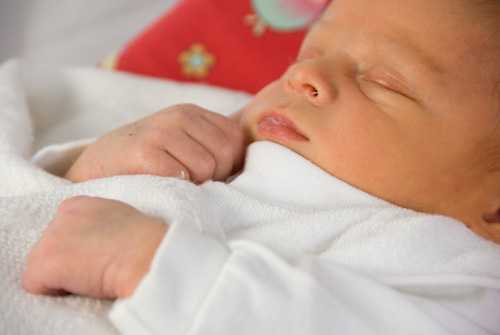Information for Families
Did You Know...
- Any baby can get jaundice.
- Jaundice can be treated.
- Severe jaundice that is not treated can cause brain damage.
Before Leaving the Hospital
Some babies with jaundice might look yellow or even orange, but it is not possible to see jaundice in all babies, especially those with darker skin color. Your baby should be checked for jaundice in the hospital and again within 48 hours after leaving the hospital.
A – C – T
Ask your baby’s doctor or nurse about a jaundice bilirubin test.
Create a follow-up plan before leaving the birth hospital. All babies 3 to 5 days old should be checked by a nurse or doctor, because this is usually when a baby’s bilirubin level is highest. The timing of the follow-up visit will depend on how old your baby is when you leave the birth hospital and on any other risk factors. Babies with jaundice in the first 24 hours of life or with high bilirubin levels before hospital discharge should have an early follow-up plan.
Treat jaundice seriously.

When to Get Help
See your baby’s doctor the same day if your baby:
- Is very yellow or orange (skin color changes start from the head and spread to the toes).
- Is hard to wake up or will not sleep at all.
- Is not breastfeeding or sucking from a bottle well.
- Is very fussy.
- Does not have enough wet or dirty diapers.
Ask your baby’s doctor or nurse about a jaundice bilirubin test.
Get emergency medical help if your baby:
- Is crying inconsolably or with a high pitch.
- Is arched like a bow (the head or neck and heels are bent backward and the body forward).
- Has a stiff, limp, or floppy body.
- Has strange eye movements.
If your Baby has Jaundice
It is important to take jaundice seriously and stick to the follow-up plan for appointments and recommended care.
Your baby might be put under special blue lights (phototherapy) to lower the bilirubin level. You should not put your baby in direct sunlight; this is not a safe treatment for jaundice and could cause sunburn. A baby with a very high bilirubin level might need a blood transfusion in the hospital.
Make sure your baby is getting enough to eat. The process of removing waste also removes bilirubin in your baby’s blood. If you are breastfeeding, you should nurse the baby at least 8 to 12 times a day for the first few days. This will help you make enough milk for the baby and will help keep the baby’s bilirubin level down. If you are having trouble breastfeeding, ask your doctor, nurse, or a lactation coach for help.
Finding Support
It might be helpful for parents of children affected by kernicterus to talk with one another. One parent might have learned how to address some of the same concerns another parent has. Often, parents of children with special needs can give advice about good resources for these children.
Remember that the choices of one family might not be best for another family, so it’s important that parents understand all options and discuss them with their child’s health care providers.
Parents of Infants and Children with Kernicterus (PICK)
PICK was formed in 2000 by a group of 7 mothers of infants and children with kernicterus. Although the founding group banded together to promote awareness, prevention and treatment of kernicterus, they are also means of support for each other. Since then, many families and medical professionals have become involved with PICK, and have formed the PICK community.
Cal's Story
My son, Cal, was born a healthy baby boy on March 23, 1995 in a large accredited hospital that delivers over 5500 newborns a year. Cal was first noted to be jaundiced through visual assessment at 16.5 hours old, but a bilirubin test was not done…
- Page last reviewed: November 7, 2016
- Page last updated: February 23, 2015
- Content source:



 ShareCompartir
ShareCompartir